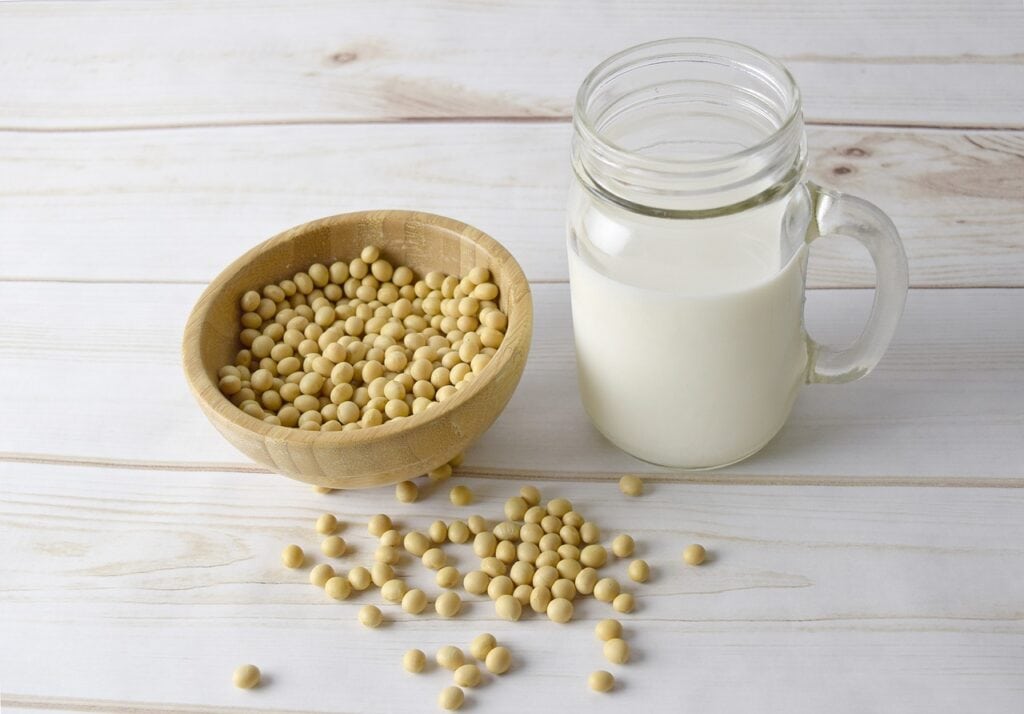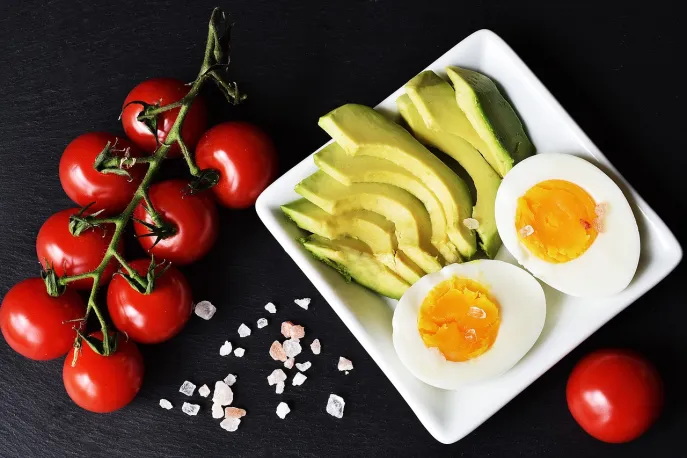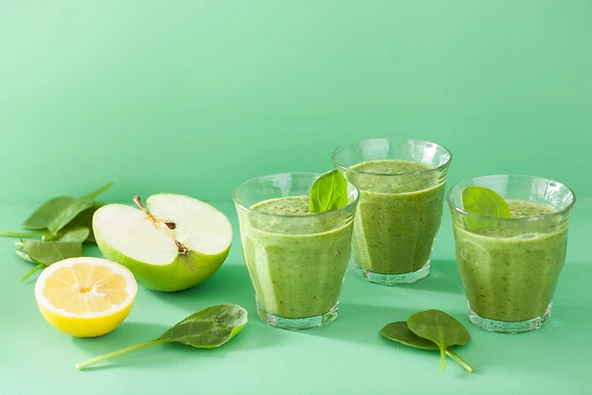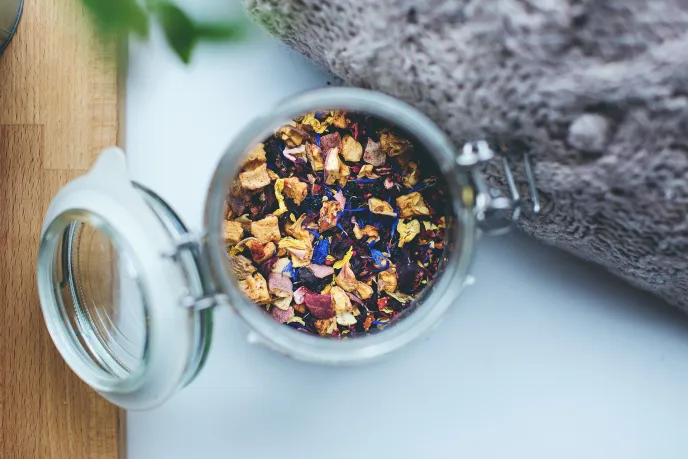Soy is an extremely nutritious and versatile food. It has, however, received a large amount of criticism making it arguably one of the most controversial foods in the world.
It’s long been hailed as an endocrine (or hormone) disruptor and labelled particularly detrimental for estrogen-linked conditions such as endometriosis. Is that really the case? What does the research say? Let’s dive right in!
What is Endometriosis?
Endometriosis is a condition in which the same tissue, similar to that which lines the inside of a woman’s uterus, grows on the outside of the uterus and on other areas of the body. This can cause inflammation and severe pain in the pelvic area around the time of menstruation, ovulation or any other time, really, and can impact on daily life and fertility.
Read more about boosting fertility naturally with endometriosis here.

As endo has no known cure, management strategies can work differently for each unique woman’s symptoms and needs. Many women firstly seek relief from pain through various pain medications and other pain relief strategies – did someone say hot pack? You may even be prescribed hormone therapy or the oral contraceptive pill and surgery to remove the endometriosis tissue are some of the most common management strategies.
Recently, the role of food and our diet has gained traction as a symptom reliever and rightfully so, as many nutrients and dietary patterns have been shown to decrease the risk of developing endometriosis as well as symptoms associated with the condition (Samaneh et al, 2019 & Parazzini et al, 2013).
What is soy exactly?
Soy foods are made from the soybean (also known as edamame) which is used to make products such as soy milk, tofu, tempeh, soy yoghurt, miso and soy sauce, as well as the slew of new soy protein products that have hit the market in the form of plant based burgers.
With the rise of veganism and plant-based diets, soy and soy products are now found in all countries around the world.
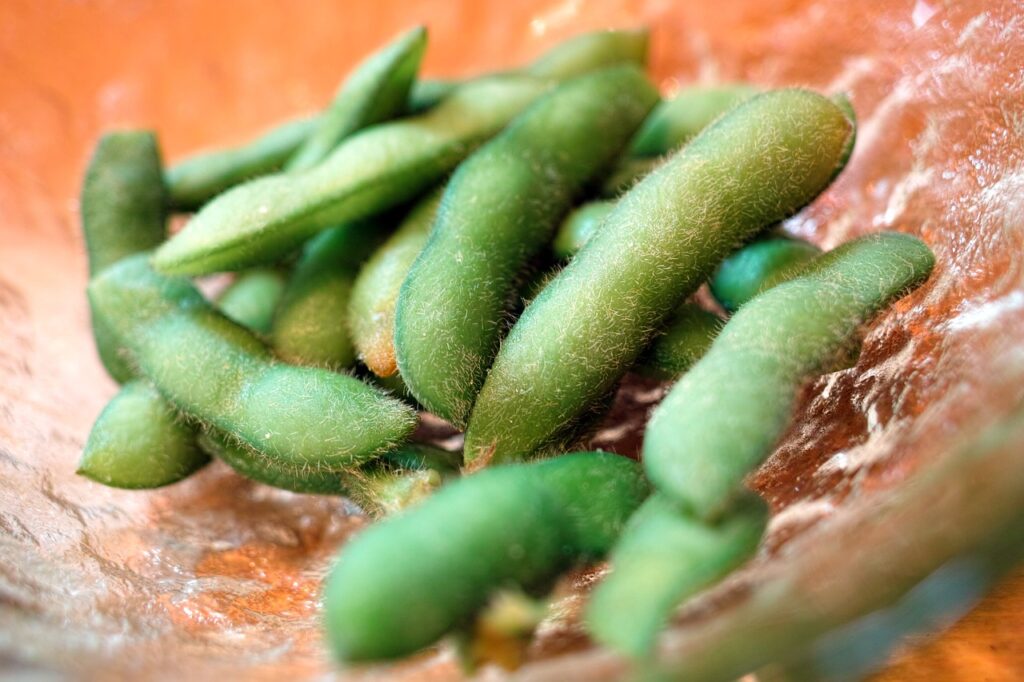
Soy contains all the essential amino acids the body requires so it’s a complete protein, which are not everywhere in the vegetarian and vegan worlds. This makes soy an excellent source of protein for anyone following a plant based or vegan diet. It also contains dietary fibre, Vitamin B2 and essential minerals potassium, iron, magnesium and in some cases calcium (when tofu is set in a calcium solution) (Messina, 2016).
Is a vegan diet helpful for fertility? Read more here.
So, why is soy a problem for endometriosis?
Soy and soy products contain specific polyphenols (aka an antioxidant) called phytoestrogens. The controversy lies in the fact that these phytoestrogens also have a similar structure to the female sex hormone estrogen and can therefore mimic the effects of estrogen in the body.
The truth is, phytoestrogens do not bind our estrogen receptors in our body the same as estrogen in the pill or the estrogen your body naturally is producing with your menstrual cycle.
These phytoestrogens exert different effects in the body depending on how much ‘natural’ estrogen is circulating in your bloodstream. Essentially, phytoestrogens exert an estrogen effect when circulating levels are low (mimics estrogen) and exerts an anti-estrogen effect when estrogen levels are too high (blocks estrogen from attaching to its receptor).
Learn more about soy here.
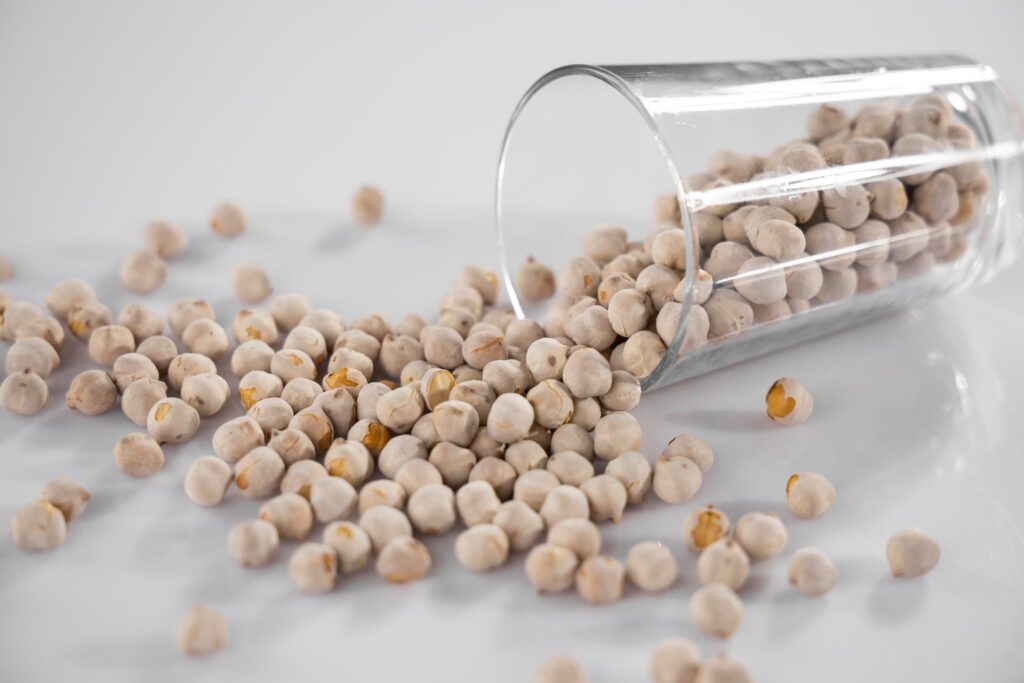
For this reason, soy and phytoestrogens have been linked to many estrogen dependent conditions such as breast cancer and endometriosis. This may sound scary, however, research in breast cancer patients, found phytoestrogens in soy have anti-estrogen effects, blocking estrogen and actually slowing disease progression (Patisaul & Jefferson 2011). Eating soy foods has also been shown to reduce the risk of developing breast cancer (Trock et al, 2006).
In other conditions such as menopause, where estrogen levels are low, certain soy phytonutrients mimic estrogen effects thereby decreasing the severity of menopausal symptoms such as hot flushes – pretty cool right?!
Read more here about eating for menopause.
While soy has been cleared as safe to consume in many conditions it must be noted that consumption of soy can cause worsening of symptoms in certain people, this may be due to intolerances, or unique individual difference, that’s totally fine! If you’re vegetarian or vegan you may want to talk to a dietitian to discuss how to meet your nutritional needs if you aren’t tolerating soy well.
So, what about soy for endometriosis?
Soy intake and endometriosis has gained a lot of attention because the progression of endometriosis is classed as ‘estrogen dependent’, meaning estrogen must be present for endometriosis to advance. This has led to theories behind soy and its phytoestrogens increasing the risk and severity of endometriosis in some women (Tsuchiya et al, 2007).
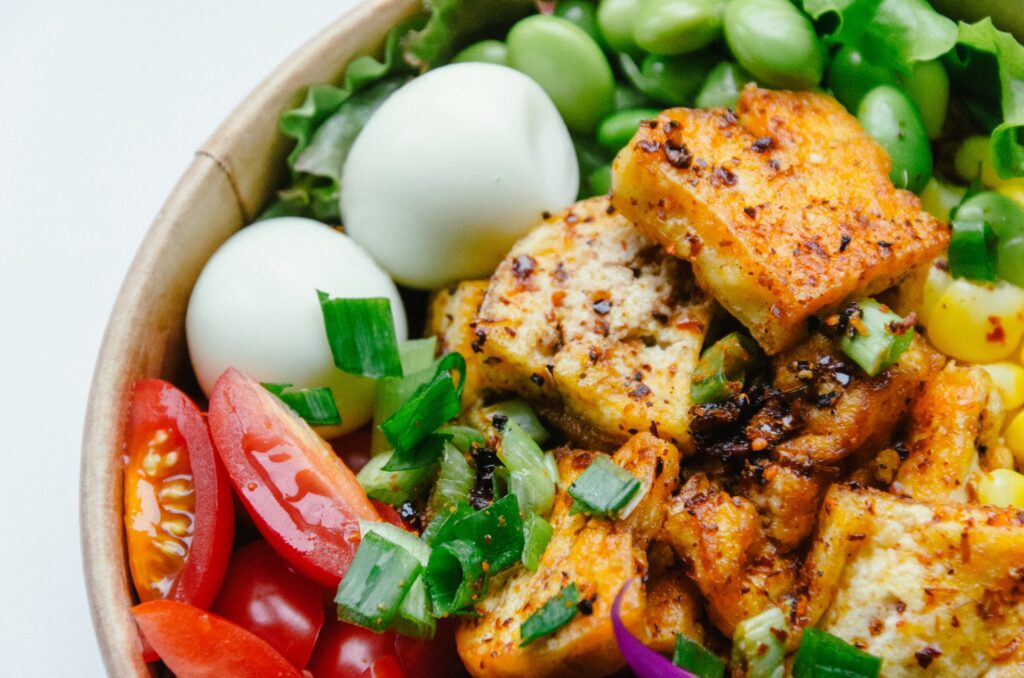
Never fear, because research has found that soy intake may actually have the opposite effect, just as it does in breast cancer patients. In countries that consume the most soy, such as Japan, they have found that women who ate more soy and its phytoestrogens had a lower risk of their endometriosis advancing or progressing (Tsuchiya et al, 2007).
This was due to the anti-estrogenic effects of the phytoestrogens, meaning they actually block the estrogen from binding to its receptors.
Got a spare hour to spend on yourself and your management of Endometriosis?
Want Scientifically Proven Nutrition and Lifestyle Strategies to Combat Endo Pain and Symptoms…
Regain Control of Your Life and Flourish Again with our 1-hour Masterclass! ONLY $75 AUD
Includes eGuide and 7-day meal plan!
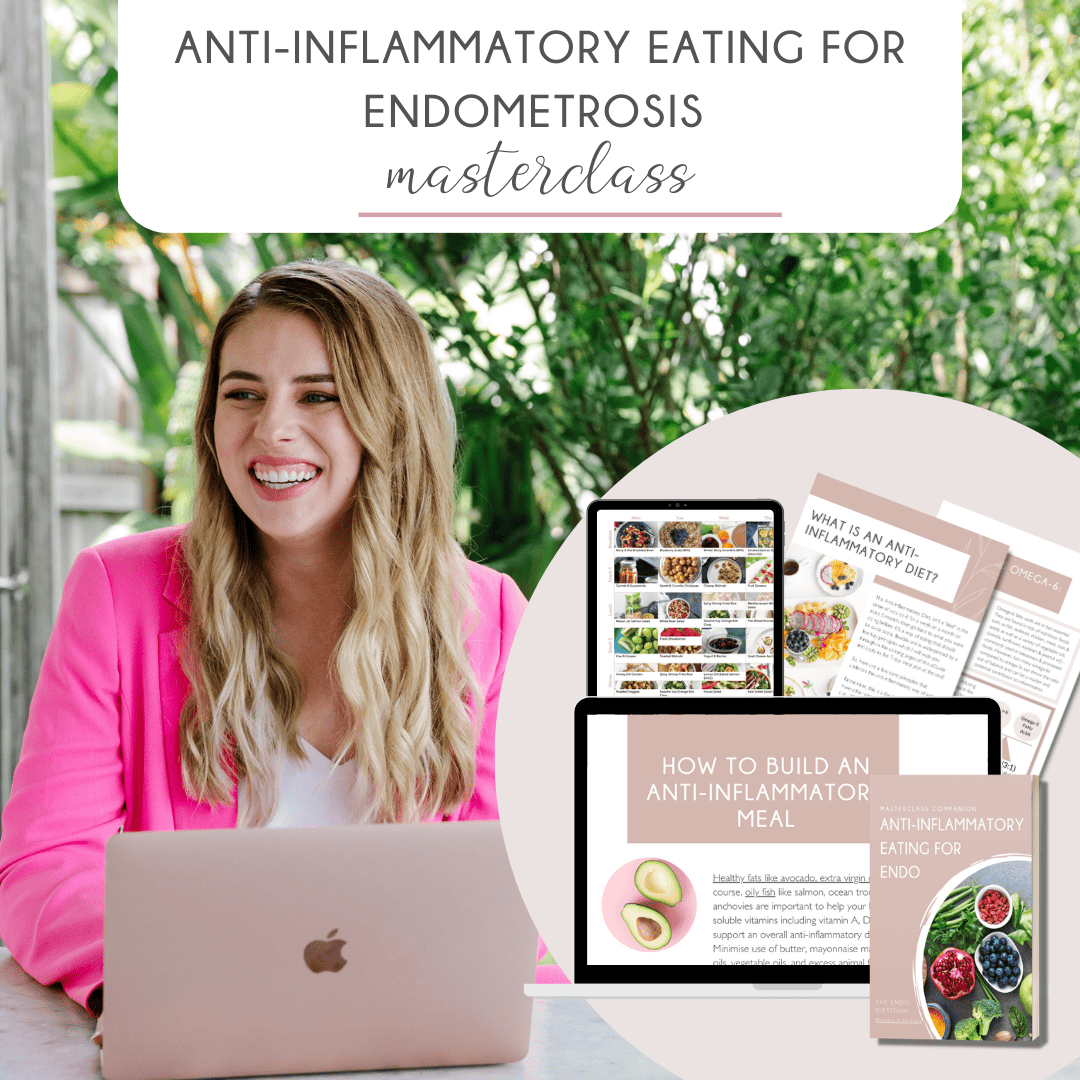
How to include soy in your diet
Aside from its protective effects in many conditions, soy and soy products are also extremely nutrient dense and are beneficial inclusions to anyone’s diet, especially those following a vegan, plant-based or lactose free diet.
By comparison, soy milk has the best matched nutrient profile to cow’s milk as it’s naturally high in protein and healthy fats which many other plant-based milks can’t offer. Soy milk is also now, more often than not, fortified with other nutrients found in milk such as calcium and vitamin B12 (win-win!) (Vanga & Raghavan, 2018)
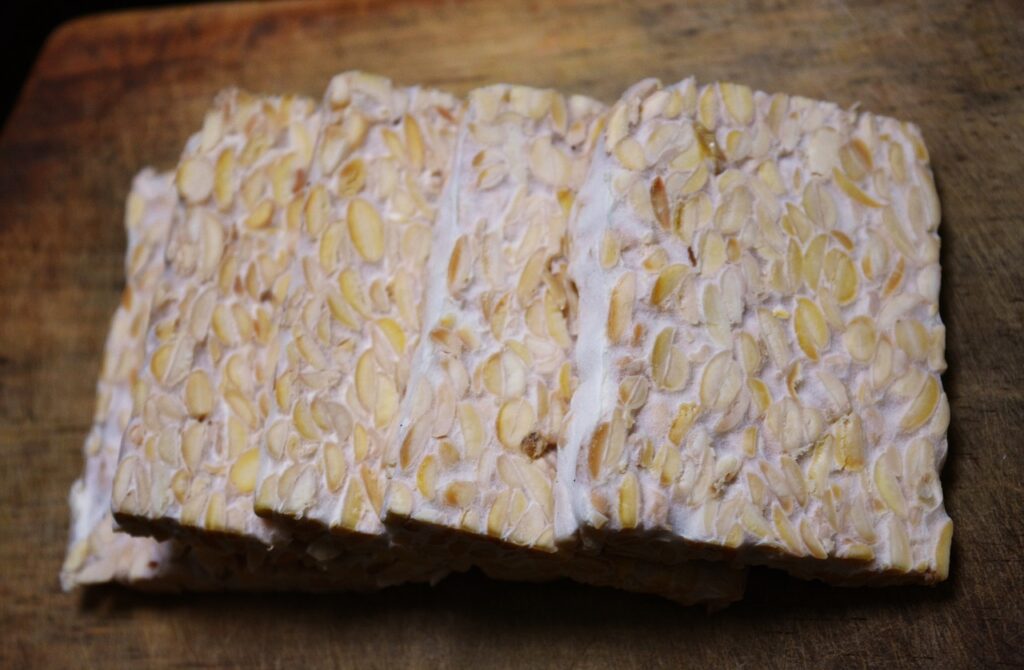
Tofu and tempeh have been used for centuries as meat alternatives in many dishes. Tempeh is made from fermented soybeans so therefore contains the added bonus of probiotics (another win-win!). Edamame is also now a common snack food in Westernised countries and can be used in a variety of dishes!
Read more about soy and endometriosis here.
What about plant-based meat alternatives?
The best way to include soy and soy-based products in your diet is to keep consumption to mostly unprocessed or as minimally processed products as possible.
This includes soy milk, tofu, tempeh, edamame and soy yoghurt. Soy can also be found in approximately 60% of processed foods in the form of textured soy protein, vegan friendly burgers, hotdogs and sausages as well as cereals, sport drinks and cakes/muffins (Patisaul & Jefferson 2011).
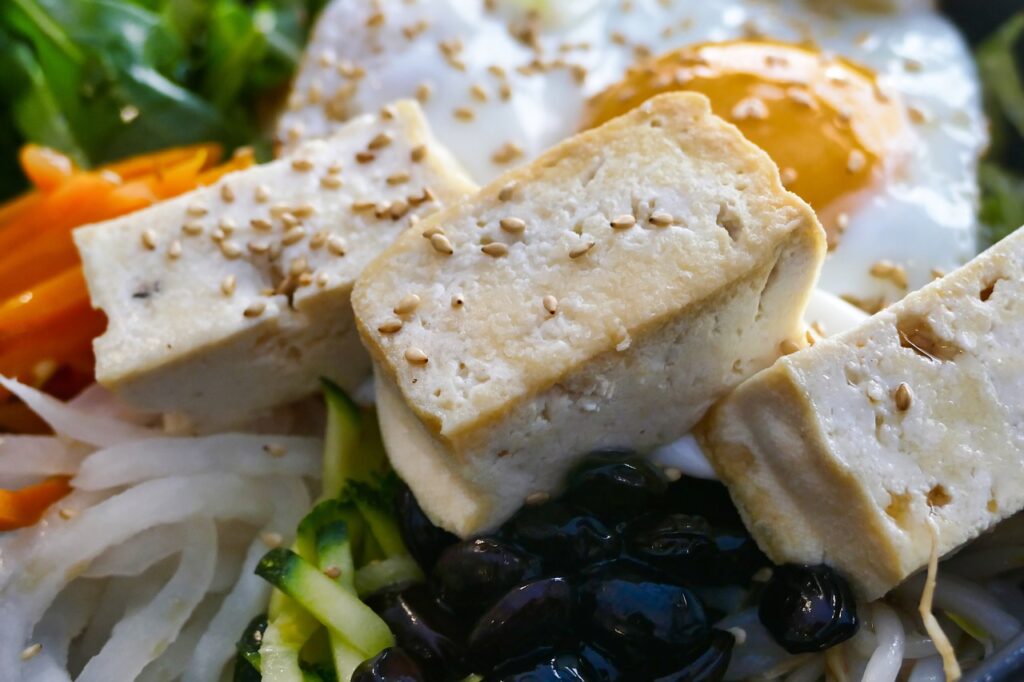
While soy-based meat alternatives such as processed sausages and burgers are safe to eat, many have been processed to the point where the beneficial nutrients are lost. Someone following a vegan or plant-based diet therefore shouldn’t rely on these types of products as their main protein sources every day, as an occasional meal in a social setting isn’t something to worry about though!
The bottom line about soy and endometriosis
With many conditions, including endometriosis, unprocessed soy products can provide antioxidant and anti-inflammatory effects that may assist in decreasing endometriosis inflammation and pain. For this reason, soy shouldn’t be feared and any concerns should be raised with your dietitian.
Need help with building an anti-inflammatory diet that suits your needs for endometriosis to support conception and throughout pregnancy? Check out our power-hour on-demand online Anti-Inflammatory Eating for Endometriosis masterclass, eGuide and meal plan designed for those with endometriosis by an expert endometriosis dietitian & nutritionist!
Looking to conceive with Endometriosis? Get on the waiting list for my new program, Get Pregnant with Endo, a 12-week program designed for women with endometriosis who are trying to conceive, reduce endo pain, say bye-bye to the bloat and enhance their fertility!
This blog was co-written by Dietitian Liana Tunzi. You can find Liana on Instagram @woodenknife_nutrition or connect with her on LinkedIn.

